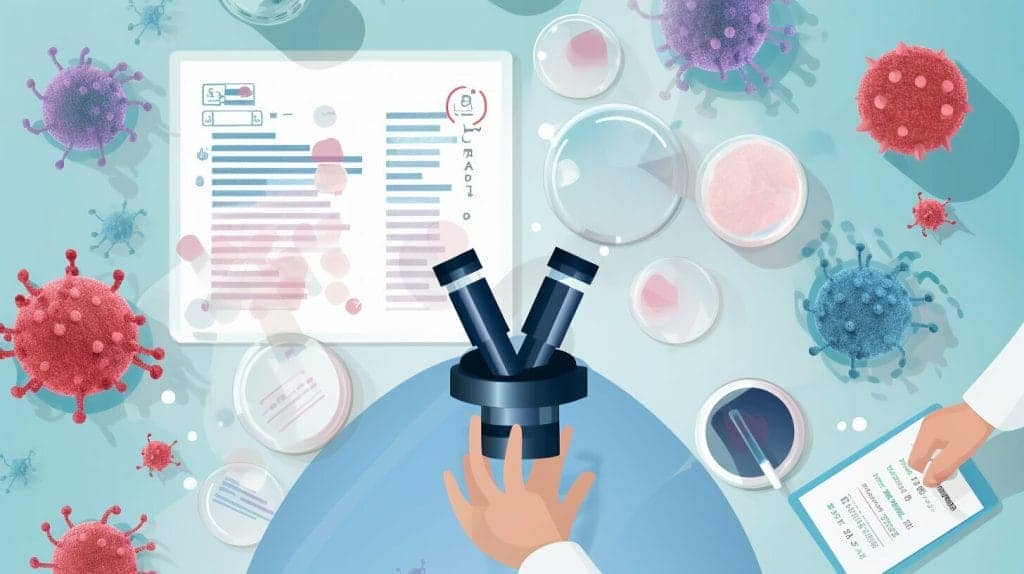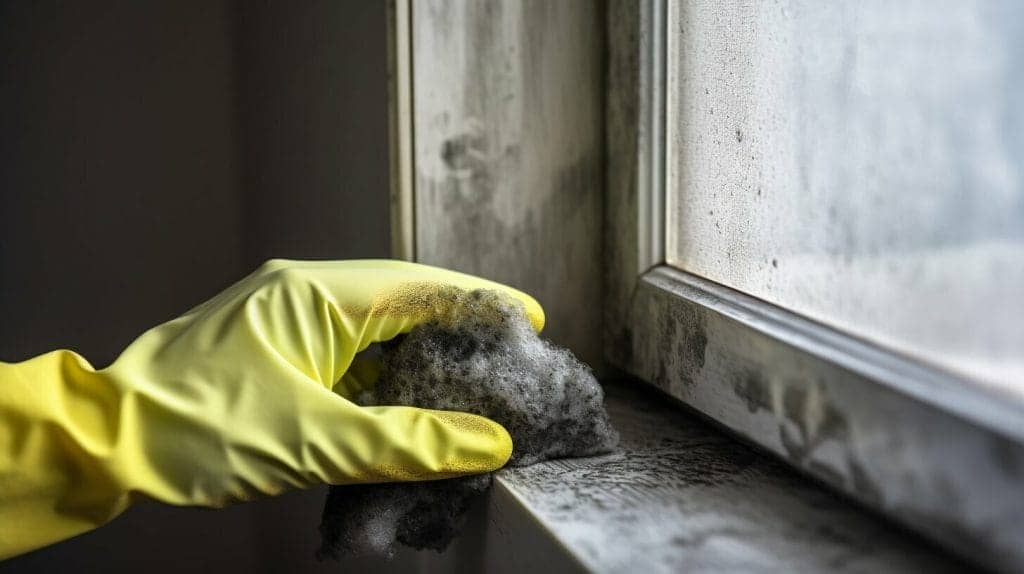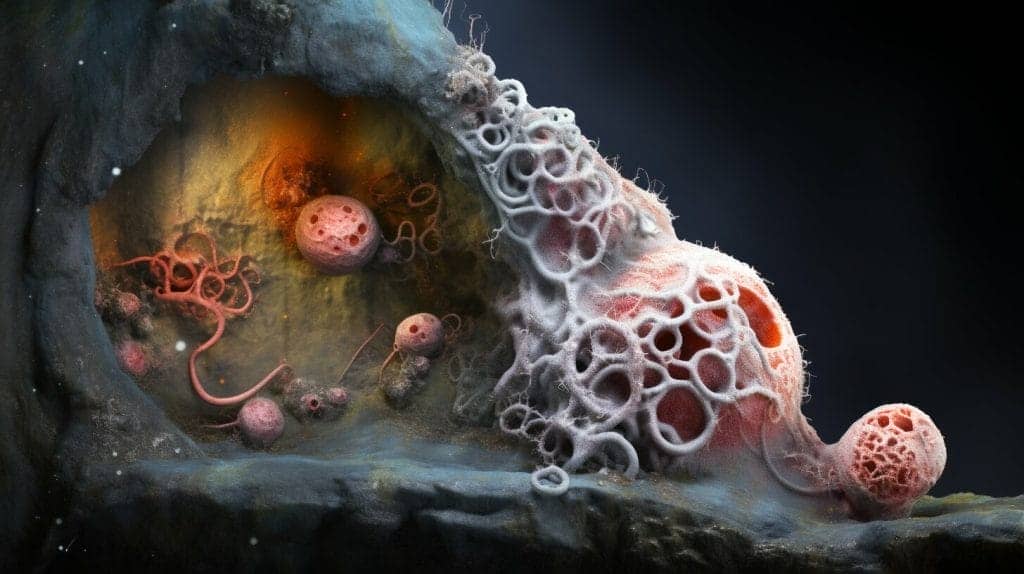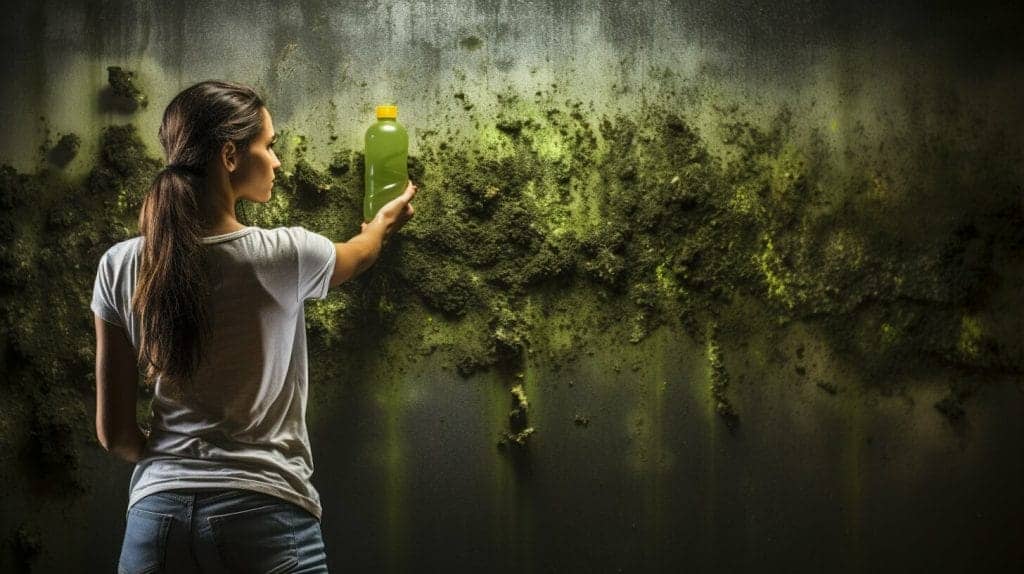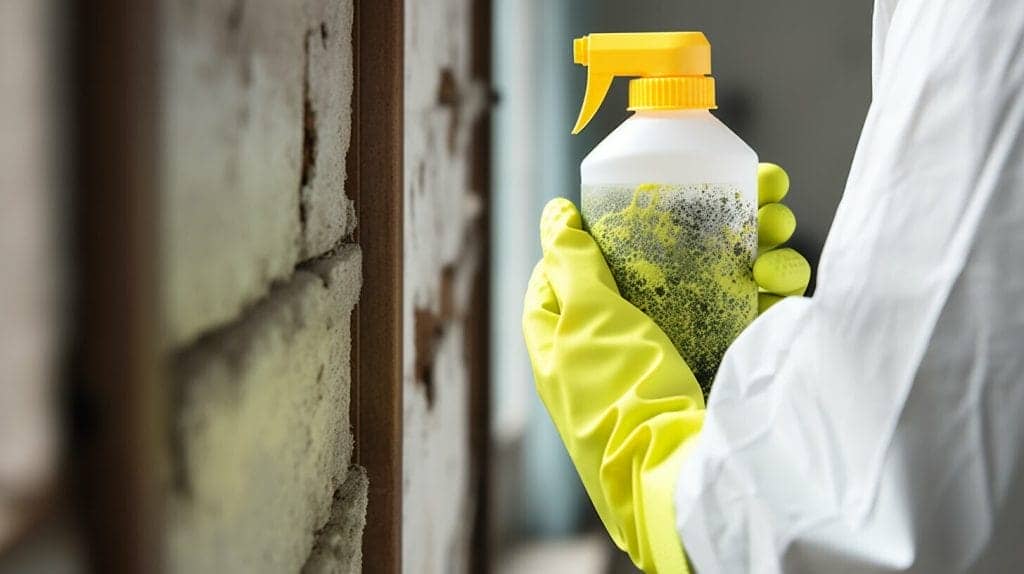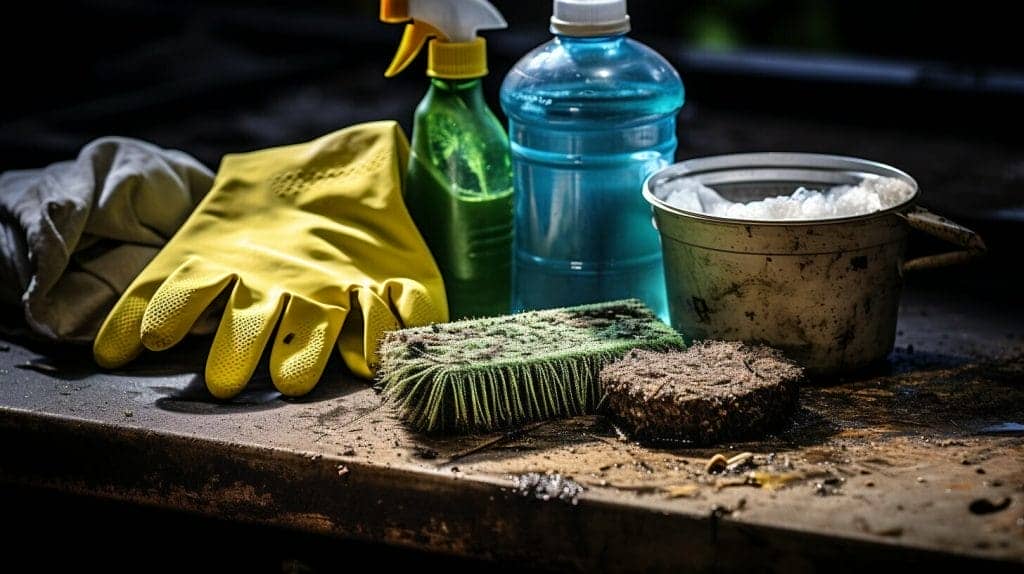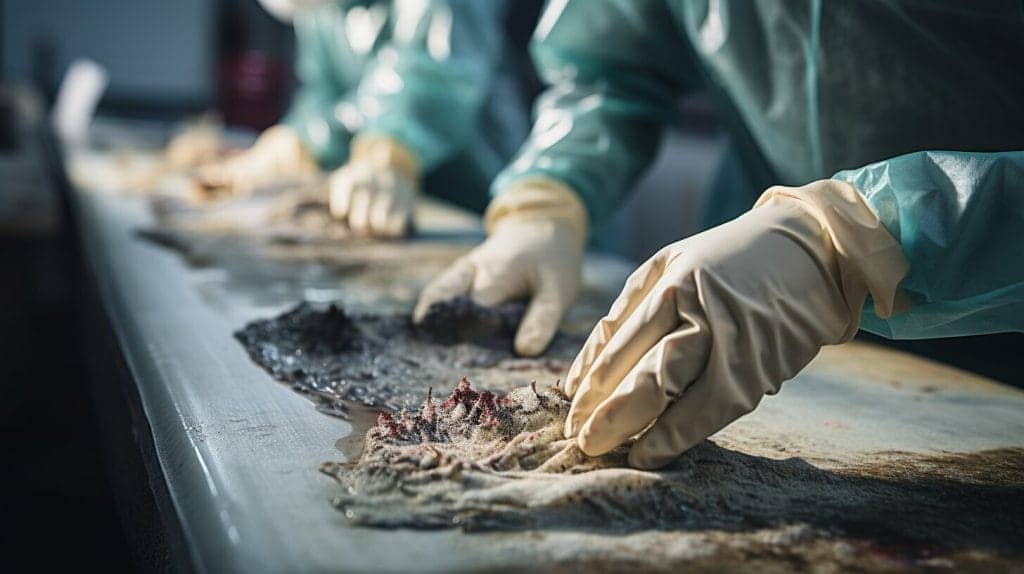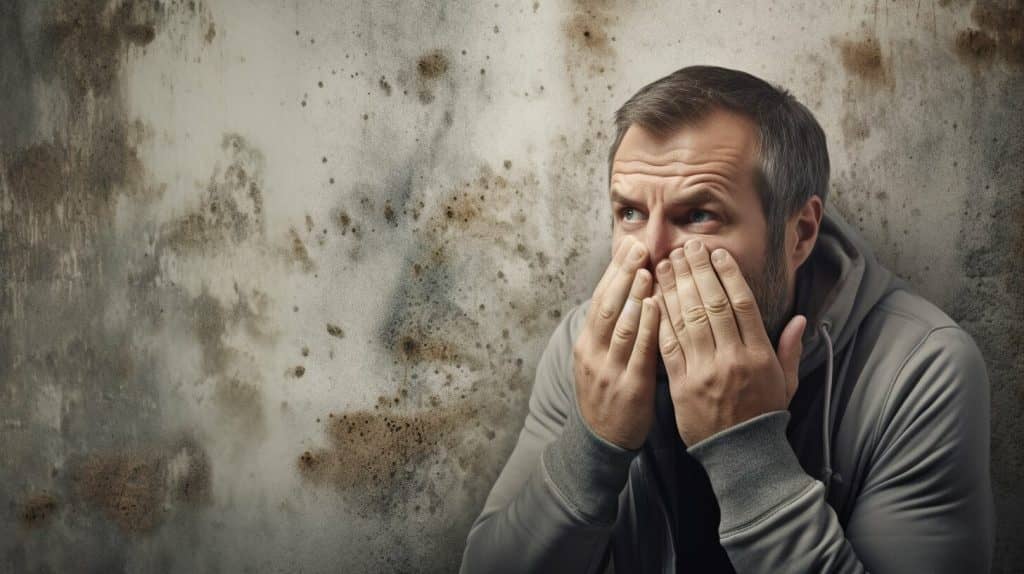Mold exposure is a serious concern and can have severe health implications. The presence of mold can cause symptoms such as allergic reactions, respiratory problems, and skin irritation. It is crucial to identify and assess mold exposure as early as possible to prevent further complications.
Clinical assessment tools are designed to identify the presence of mold exposure and help healthcare providers determine the best course of treatment. These tools may include physical exams, diagnostic tests, and questionnaires. It is essential to understand the different clinical assessment tools available to effectively diagnose and treat mold exposure.
Key Takeaways:
- Clinical assessment tools are used to identify and assess mold exposure.
- Physical exams, diagnostic tests, and questionnaires are common clinical assessment tools.
- Early detection and treatment of mold exposure is crucial to prevent further health complications.
Understanding Mold Exposure Symptoms
Mold exposure occurs when an individual inhales mold spores or comes into contact with mold on their skin or clothes. Exposure to mold can lead to a wide range of symptoms, which can vary depending on the individual’s sensitivity to mold and the duration of exposure.
The symptoms of mold exposure can range from mild to severe and may include:
- Sneezing
- Coughing
- Runny or stuffy nose
- Itchy or watery eyes
- Wheezing
- Shortness of breath
- Throat irritation
- Skin irritation or rash
- Headache
- Fatigue
- Brain fog
- Muscle weakness
- Joint pain
- Nausea or vomiting
- Memory loss
If you are experiencing any of these symptoms and suspect that mold exposure may be the cause, it is important to get tested. A mold exposure evaluation can help determine the source and extent of exposure, and guide effective treatment options.
Testing for mold exposure may include assessing environmental factors such as air quality and humidity levels, conducting a physical exam, and evaluating symptoms using clinical assessment tools like questionnaires and checklists.
Diagnostic Tools for Mold Exposure
Assessing mold exposure requires a systematic approach to diagnose the severity of the condition. Mold exposure assessment tools include checklists and questionnaires that aim to identify any potential symptoms. These diagnostic tools are designed to determine individuals who may be at risk of exposure to mold. Utilizing these tools can help assess the patient’s condition and determine the right course of treatment.
A mold exposure assessment checklist is designed to identify potential risk factors for mold exposure. This tool considers factors such as the age of the building, the building’s location, and the presence of moisture. Additionally, the checklist may assess symptoms like respiratory problems, headaches, and fatigue, which could indicate exposure to mold.
A mold exposure assessment questionnaire may also be used as a diagnostic tool. The questionnaire may include questions about the time and duration of the symptoms, their severity, and any other factors that could indicate exposure to mold. It may also inquire about the patient’s occupation, lifestyle habits, family history, and any medication they may be taking.
Mold Exposure Assessment Guidelines
When assessing mold exposure, it is important to have clear guidelines to follow for accurate and consistent results. The following mold exposure assessment guidelines can be used to evaluate the extent and severity of mold exposure in individuals or buildings:
| Guideline | Procedure |
|---|---|
| Visual Inspection | Conduct a thorough visual inspection of the area being assessed for mold growth, water damage, and any signs of musty odors. |
| Mold Sampling | Collect air and surface samples for mold and send them to a certified lab for analysis. |
| Medical Evaluation | Conduct a medical evaluation of individuals for mold exposure symptoms and health effects. |
| Environmental Testing | Test the air and surfaces for moisture, humidity, and other environmental factors that may contribute to mold growth. |
Following these guidelines can help to accurately assess the extent and severity of mold exposure and determine the appropriate treatment options. It is important to note that mold exposure assessment should be conducted by trained and experienced professionals to ensure the best results.
Mold Exposure Assessment Criteria
Clinicians use a variety of criteria to assess individuals for mold exposure. Some criteria are based on subjective symptoms, while others are objective measurements of mold toxins or allergens in the body or environment. Here are some commonly used mold exposure assessment criteria:
| Criteria | Description |
|---|---|
| Symptom checklist | A questionnaire about symptoms associated with mold exposure, such as respiratory problems, fatigue, and skin irritation. |
| Biomarker measurements | Tests to measure mold toxins or allergens in the body, such as mycotoxins in urine or blood tests for mold-specific antibodies. |
| Environmental testing | Tests to detect mold in the environment, such as air or surface sampling for mold spores or mycotoxins. |
| History and physical exam | An evaluation of the individual’s medical history and physical symptoms associated with mold exposure. |
Combined, these assessment criteria can help clinicians diagnose mold exposure and determine the best course of treatment for the individual. It is essential to use these criteria to develop a comprehensive assessment that covers the individual’s symptoms, environmental exposure, and potential biomarkers of mold toxicity.
It is important to note that not all individuals with mold exposure will exhibit symptoms or positive biomarkers. A skilled clinician should take a multi-faceted approach to assess and diagnose mold exposure.
Treatment Options for Mold Exposure
When it comes to treating mold exposure, there are a variety of options available. The best course of action will depend on the severity of the symptoms and the extent of the mold exposure.
In many cases, the first step in treating mold exposure is to remove the individual from the environment in which the exposure occurred. This may involve relocating to a temporary residence while the mold issue is addressed in the home or workplace.
From there, treatment may involve medications to alleviate symptoms such as nasal congestion, coughing, and respiratory distress. Over-the-counter antihistamines and decongestants may be effective in relieving symptoms in some cases, while prescription medications such as corticosteroids and bronchodilators may be necessary in more severe cases.
Alternative and Holistic Options
Some individuals may prefer to pursue alternative or holistic treatment options for mold exposure. These may include:
- Herbal remedies: Certain herbs and supplements may have anti-inflammatory or immune-boosting properties that can help alleviate symptoms.
- Acupuncture: This traditional Chinese medicine practice involves the insertion of thin needles into specific points of the body to promote healing and balance.
- Chiropractic care: Spinal adjustments may be helpful in relieving respiratory symptoms and promoting overall wellness.
It’s important to note, however, that alternative and holistic treatments for mold exposure have not been extensively studied, and their effectiveness has not been thoroughly researched.
Oasis Medical Institute Treatment Program
For those seeking a more comprehensive approach to mold exposure treatment, the Oasis Medical Institute offers a holistic Mold Toxicity treatment program led by Dr. Francisco Contreras MD. This program includes a range of treatment modalities, including:
- IV therapy: This treatment involves the administration of vitamins, minerals, and other nutrients directly into the bloodstream to support immune function and accelerate healing.
- Hyperbaric oxygen therapy: By breathing in pure oxygen in a pressurized chamber, this treatment can help increase oxygen levels in the blood and promote healing.
- Detoxification: Through a combination of dietary changes, supplements, and other interventions, the Oasis Medical Institute treatment program aims to support the body’s natural detoxification processes.
To learn more about the Oasis Medical Institute’s holistic Mold Toxicity treatment program or to book a consultation, call 866-868-1992.
Holistic Mold Toxicity Treatment at Oasis Medical Institute
For patients seeking a comprehensive, holistic approach to mold exposure treatment, Oasis Medical Institute is an excellent choice. Led by Dr. Francisco Contreras MD, a renowned expert in integrative medicine, Oasis offers a range of treatment options designed to address the root causes of mold toxicity and promote enduring health and wellness.
At Oasis, the focus is on treating the whole person, not just the mold exposure symptoms. Dr. Contreras and his team take a personalized approach to care, working closely with each patient to develop a customized treatment program that may include a variety of therapies, such as:
- IV Nutrient Therapies
- Oxygen Therapy
- Chelation Therapy
- Cytokine Therapy
- Immune-Enhancing Supplements
- Dietary Counseling
- Lifestyle Modifications
With an emphasis on natural healing modalities and non-toxic therapies, Oasis Medical Institute is committed to helping patients achieve optimal health and wellness. Dr. Contreras and his team understand that mold toxicity can be a complex, multi-faceted condition, and they are dedicated to supporting patients throughout the healing process.
For those seeking a holistic mold toxicity treatment program, booking a consultation with Oasis Medical Institute is easy. Simply call 866-868-1992 to schedule an appointment and take the first step on the road to recovery.
Dr. Contreras and his team are committed to providing ongoing care and support to patients long after their initial treatment program has been completed. With a focus on comprehensive mold exposure treatment and lasting wellness, Oasis Medical Institute is a leader in integrative medicine and a trusted resource for patients seeking relief from mold toxicity.
Booking a Consultation at Oasis Medical Institute
If you are interested in booking a consultation for a holistic Mold Toxicity treatment program, the process at Oasis Medical Institute is simple. Prospective patients can call 866-868-1992 to schedule an appointment with Dr. Francisco Contreras MD. During the consultation, Dr. Contreras will discuss your symptoms and medical history to determine the best course of action for your individual needs.
The Importance of Holistic Treatment for Mold Exposure
While there are various treatment options available for mold exposure, holistic approaches have gained popularity in recent years. Holistic mold exposure treatment focuses on addressing the root cause of the problem rather than just treating the symptoms.
Unlike conventional treatments that rely on medications, holistic mold exposure treatment utilizes natural remedies, lifestyle changes, and personalized treatment plans. This approach aims to improve overall well-being, boost the immune system, and promote self-healing.
Furthermore, holistic treatment options provide a comprehensive approach to treating mold exposure, which can have a significant impact on the effectiveness of the treatment program. Holistic treatments often include a combination of therapies such as nutrition counseling, stress management, and detoxification.
Overall, holistic mold exposure treatment offers a safe, effective, and less invasive approach to treating mold exposure. By addressing the underlying causes, patients may experience long-lasting relief from symptoms and improved quality of life.
Continued Support and Care at Oasis Medical Institute
At Oasis Medical Institute, we understand that effective treatment for mold exposure is not a one-time event. Our comprehensive mold exposure treatment program includes ongoing care and support to ensure that our patients achieve lasting health and well-being.
Our medical team works closely with each patient to develop a personalized treatment plan that addresses their unique needs and goals. We use a combination of conventional and holistic therapies to treat mold exposure and its associated symptoms.
| Comprehensive Mold Exposure Treatment | Ongoing Care |
|---|---|
| Our treatment program includes detoxification, dietary changes, and immune system support to help patients eliminate toxins from their body and promote healing. | We offer regular follow-up appointments and monitoring to ensure patients continue to make progress and make any necessary adjustments to their treatment plan. |
| We also provide education and resources to help patients reduce their exposure to mold and prevent future health issues. | Our team is available to answer questions and provide support throughout the treatment process. |
At Oasis Medical Institute, we are committed to helping our patients achieve optimal health and well-being. Contact us today to learn more about our holistic mold exposure treatment options and comprehensive ongoing care.
Exploring Additional Resources for Mold Exposure
Dealing with mold exposure can be overwhelming and frustrating for those affected by it. Fortunately, there are various resources available online to help individuals navigate the process of identifying and treating mold exposure.
One of the best places to start is the Environmental Protection Agency (EPA) website, which provides a wealth of information on mold prevention, removal, and remediation. Another helpful resource is the National Institute of Environmental Health Sciences (NIEHS), which offers educational materials and research on mold exposure and related health effects.
For those seeking more personalized assistance, there are also online support groups and forums where individuals can connect with others who have experienced mold exposure and share advice and tips on coping with the condition. Some notable resources include Mold Survivor and Global Indoor Health Network.
In addition to these resources, it may be helpful to consult with a mold expert or professional for guidance on testing, evaluation, and remediation. The American Council for Accredited Certification (ACAC) offers a directory of certified mold inspectors and remediators, while the Indoor Environmental Standards Organization (IESO) provides a database of accredited indoor environmental professionals.
Overall, the key to effectively managing mold exposure is to remain informed and proactive. By utilizing these resources and seeking out professional assistance when necessary, individuals can take control of their health and well-being.
Testimonials: Success Stories from Mold Exposure Treatment
At Oasis Medical Institute, we pride ourselves on providing holistic mold exposure treatment that delivers exceptional results for our patients. Our team of experienced physicians, led by Dr. Francisco Contreras MD, has helped numerous patients overcome the harmful effects of mold exposure and reclaim their health and well-being.
Here are just a few of the success stories from our mold exposure treatment program:
| Name | Treatment Outcome |
|---|---|
| John | After struggling with chronic fatigue and respiratory issues for years, John came to Oasis Medical Institute for mold exposure treatment. With the help of our comprehensive program, John experienced a significant improvement in his symptoms and was able to enjoy a better quality of life. |
| Jane | Jane had been experiencing a wide range of health issues, including headaches, joint pain, and skin problems. After discovering mold in her home, she sought treatment at Oasis Medical Institute. Through our holistic approach to mold exposure treatment, Jane was able to regain her health and vitality. |
Our patients’ success stories are a testament to the effectiveness of our comprehensive mold exposure treatment program. At Oasis Medical Institute, we are committed to providing personalized, compassionate care that supports our patients’ long-term health and well-being.
Conclusion
In conclusion, mold exposure can have serious health consequences, which is why it is important to properly assess and treat it. Clinical assessment tools, such as testing, evaluation, and diagnostic tools, can help determine the extent of mold exposure and guide treatment decisions. It is essential to follow established guidelines and criteria for mold exposure assessment and treatment.
Holistic treatment options, like those offered at Oasis Medical Institute by Dr. Francisco Contreras MD, offer a comprehensive approach that addresses the root causes of mold exposure and promotes overall health and wellness. Patients can book a consultation by calling 866-868-1992 and receive ongoing care and support throughout their treatment journey.
Additional mold exposure resources are also available to help patients stay informed and make the best decisions for their health. Success stories and testimonials from patients who have undergone mold exposure treatment can provide hope and inspiration to those seeking relief.
Overall, it is crucial to take mold exposure seriously and seek proper assessment and treatment. With the right tools, resources, and support, patients can overcome mold toxicity and reclaim their health and well-being.
FAQ
Q: What are clinical assessment tools for mold exposure?
A: Clinical assessment tools for mold exposure are diagnostic methods and evaluation techniques used by medical professionals to assess individuals who may have been exposed to mold. These tools help determine the presence of mold-related symptoms and guide treatment options.
Q: What are common symptoms of mold exposure?
A: Common symptoms of mold exposure include coughing, wheezing, nasal congestion, throat irritation, skin rashes, and eye irritation. Other symptoms may include headaches, fatigue, difficulty breathing, and exacerbation of asthma symptoms.
Q: What diagnostic tools are used for mold exposure?
A: Diagnostic tools for mold exposure may include visual inspection, medical history evaluation, physical examination, laboratory tests, and imaging studies. These tools help identify the presence and extent of mold-related health issues.
Q: What are the guidelines for mold exposure assessment?
A: Mold exposure assessment guidelines involve a systematic approach to evaluate individuals who may have been exposed to mold. These guidelines may include protocols for patient assessment, environmental evaluation, and laboratory testing to establish a comprehensive understanding of the mold exposure situation.
Q: What criteria are used for mold exposure assessment?
A: Mold exposure assessment criteria may vary depending on the specific assessment tool or guideline being used. However, common criteria include the presence of symptoms consistent with mold exposure, supporting evidence of mold growth or exposure, and elimination of other potential causes for the symptoms.
Q: What are the treatment options for mold exposure?
A: Treatment options for mold exposure may include medications to alleviate symptoms, environmental interventions to remove or reduce mold sources, and lifestyle modifications to improve overall health. Holistic approaches that address the underlying causes of mold exposure may also be recommended.
Q: What is holistic mold toxicity treatment at Oasis Medical Institute?
A: Holistic mold toxicity treatment at Oasis Medical Institute is a comprehensive approach that focuses on addressing the physical, emotional, and environmental factors contributing to mold exposure. This includes individualized treatment plans, supportive therapies, and lifestyle recommendations.
Q: How can I book a consultation at Oasis Medical Institute?
A: To book a consultation for holistic mold toxicity treatment program at Oasis Medical Institute, you can call 866-868-1992. Our friendly staff will assist you in scheduling an appointment with Dr. Francisco Contreras MD or another qualified healthcare professional.
Q: Why is holistic treatment important for mold exposure?
A: Holistic treatment for mold exposure takes into account the interconnectedness of physical, mental, and environmental health. By addressing underlying imbalances and supporting the body’s natural healing processes, holistic treatment can promote long-term recovery and overall well-being.
Q: What ongoing support and care can I expect at Oasis Medical Institute?
A: At Oasis Medical Institute, we provide comprehensive mold exposure treatment programs that include ongoing support and care. Our team of healthcare professionals will monitor your progress, adjust treatment plans as needed, and provide guidance and education to help you maintain a mold-free and healthy lifestyle.
Q: What additional resources are available for mold exposure?
A: There are various resources available for individuals seeking more information on mold exposure. These resources may include websites, books, research articles, support groups, and educational materials that offer insights into mold-related health issues and prevention strategies.
Q: Can you provide testimonials or success stories from mold exposure treatment?
A: Yes, we have numerous testimonials and success stories from individuals who have benefited from our mold exposure treatment programs at Oasis Medical Institute. These stories highlight the positive outcomes experienced by our patients and their journey towards improved health and well-being.
Dr. Francisco Contreras, MD is a renowned integrative medical physician with over 20 years of dedicated experience in the field of integrative medicine. As the Medical Director of the Oasis of Hope Hospital in Tijuana, Mexico, he has pioneered innovative treatments and integrative approaches that have been recognized globally for the treatment of cancer, Lyme Disease, Mold Toxicity, and chronic disease using alternative treatment modalities. Dr. Contreras holds a medical degree from the Autonomous University of Mexico in Toluca, and speciality in surgical oncology from the University of Vienna in Austria.
Under his visionary leadership, the Oasis of Hope Hospital has emerged as a leading institution, renowned for its innovative treatments and patient-centric approach for treating cancer, Lyme Disease, Mold Toxicity, Long-Haul COVID, and chronic disease. The hospital, under Dr. Contreras's guidance, has successfully treated thousands of patients, many of whom traveled from different parts of the world, seeking the unique and compassionate care the institution offers.
Dr. Contreras has contributed to numerous research papers, articles, and medical journals, solidifying his expertise in the realm of integrative medicine. His commitment to patient care and evidence-based treatments has earned him a reputation for trustworthiness and excellence. Dr. Contreras is frequently invited to speak at international conferences and has been featured on CNN, WMAR2 News, KGUN9 News, Tyent USA, and various others for his groundbreaking work. His dedication to the medical community and his patients is unwavering, making him a leading authority in the field.
Contreras has authored and co-authored several books concerning integrative therapy, cancer, Lyme Disease and heart disease prevention and chronic illness, including "The Art Science of Undermining Cancer", "The Art & Science of Undermining Cancer: Strategies to Slow, Control, Reverse", "Look Younger, Live Longer: 10 Steps to Reverse Aging and Live a Vibrant Life", "The Coming Cancer Cure Your Guide to effective alternative, conventional and integrative therapies", "Hope Medicine & Healing", "Health in the 21st Century: Will Doctors Survive?", "Healthy Heart: An alternative guide to a healthy heart", “The Hope of Living Cancer Free”, “Hope Of Living Long And Well: 10 Steps to look younger, feel better, live longer” “Fighting Cancer 20 Different Ways”, "50 Critical Cancer Answers: Your Personal Battle Plan for Beating Cancer", "To Beat . . . Or Not to Beat?", and “Dismantling Cancer.”

